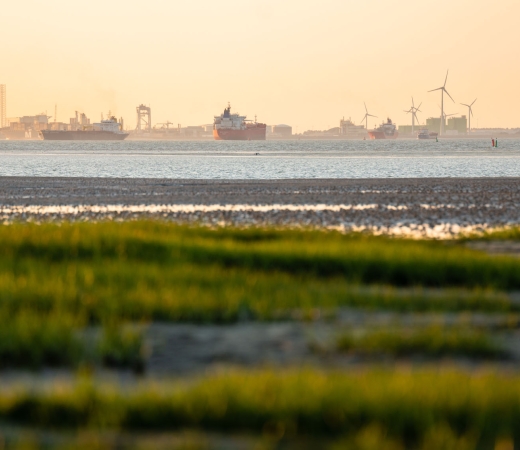Carbon Connect Delta

CCS of crucial importance
The NL Climate Agreement sets out the ambition to achieve a 14.3 Mton CO2 reduction per year by 2030. The Carbon Connect Delta Program has the ambition to capture, transport and store 5.6 Mton CO2 by 2030. through Carbon Capture and Storage (CCS). The impact of this reduction amounts to almost 40% of the Dutch reduction targets. As of 2026, Carbon Connect Delta, in collaboration with Aramis, will be able to reduce 3.3 Mtonnes of CO2 per year, by means of CO2 capture from the industrial activities of the SDR companies. It is now widely recognized that the development of a cross-border CCS infrastructure is necessary to achieve the ambitious climate targets for industry. There are no other cost-efficient and timely alternatives to fully switch to sustainable technologies in the next ten years. There are also initiatives regarding CCS in the other industry clusters. Although these are separate, they are likely to use the same CCS infrastructure. The application of CCS is also of crucial importance within the hydrogen transition path. Development of the CCS system is an essential step towards a CO2-neutral and circular industry in the region.
The Carbon Connect Delta Program has the ambition to capture, transport and store 6.5 Mtonnes of CO2 by 2030 by means of Carbon Capture and Storage (CCS).
In the Scheldt Delta region, the development of the CCS system is the first step towards a CO2-neutral and circular industry. If the continued development of CCS is not realized according to plan, not only will the 3.3 Mton CO2 reduction per year not be achieved; without this bridging option, the implementation of the other transition paths, such as the transformation of production installations to hydrogen and electrification, will also stagnate. The complementary impact of CCS, hydrogen, electrification, additional landings of offshore wind and the recent establishment of important parties is essential within the strategic sustainability of the region.
Since the start of the program, Carbon Connect Delta has been given increasingly clear contours. The multi-year feasibility study into a regional CCS infrastructure in the region will be completed in 2021. This involved mapping the commercial, financial, social and legal frameworks for large-scale capture, reuse, transport and permanent storage of CO2 (CCS), and the role that SDR partners can play in this. The completion of the PreFEED phase has resulted in several promising follow-up processes in 2021. In the coming years, the FEED phase (Concept Select study) will focus on the realization of this by SDR members and chain partners.